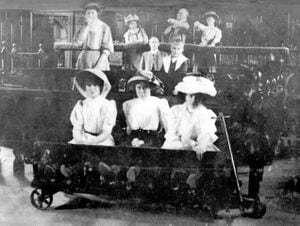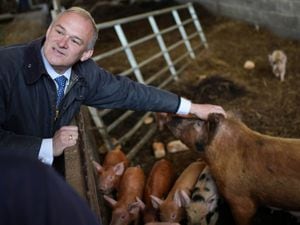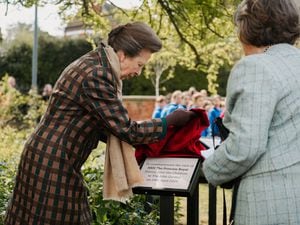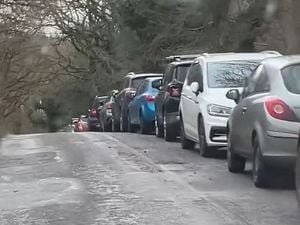Fearsome weapon to thwackdown on naughty schoolchildren
Well, it never did Walsall kids any harm. Or did it?
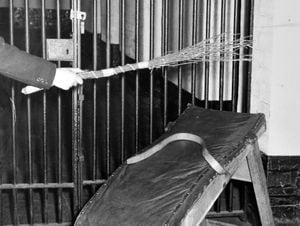
Mind you, it must have stung quite a bit.
We're talking about the tawse, a fearsome instrument of punishment in the hands of Walsall headteachers thwacking down on bad behaviour in school.
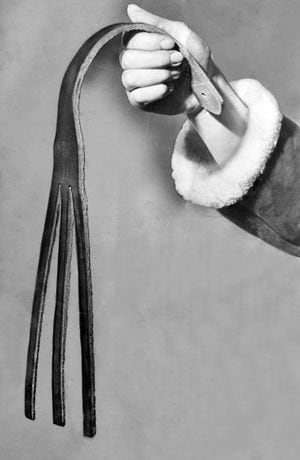
The tawse was a three-pronged leather strap and was not only officially approved, it was sent out to heads in the post.
And it was in use well into the mid-1980s when Walsall was believed to be one of only a handful of education authorities still deploying it.
It was not just something for big bad boys (or girls) – this was a punishment also administered in primary schools.
The tawse, which also went by other names such as the belt, or the strap, must have made the cane look like something for cissies. Being made of leather may partly explain why the leather-making town of Walsall was attached to it for so long.
There had long been objections to its use. In December 1966 Councillor C J Andrew produced a tawse at Walsall's education, finance and general purposes sub-committee when he put forward a motion "that this vicious article should be withdrawn from all schools in the borough," although confusingly he was quoted as saying: "I would like to see it used on seniors, but not on juniors."
He said the tawse was sent through the post to schools and was punishment approved by the committee.
"I tried it on my leg and it made me jump and it would certainly make any child jump. A little child told me that a teacher went around with one of these stuck up his jumper."
Nothing came of it as he later withdrew his proposal.
Perhaps a crime at Busill Jones junior school, on the Dudley Fields estate in Bloxwich, was a case of children taking things into their own hands, when a tawse – along with a bar of chocolate and a tube of fruit gums – was stolen from the drawer in the headmaster's study in December 1968. No matter, the head, Mr G J Hill, had another one.
It was the second such crime at the school, as the previous February a tawse had been stolen when Mr H W Boot was headmaster – he had died in the interim.
By January 1973 Walsall teachers were considering whether to press for the abolition of the tawse, but there were still a few years of life in it yet as it was not outlawed in Walsall until February 1987, shortly before a nationwide ban on corporal punishment came in.
Of course the tawse was only one of a number of physical punishments available. The birch, used to beat miscreants, was abolished in 1948, but remained available for use in prisons.
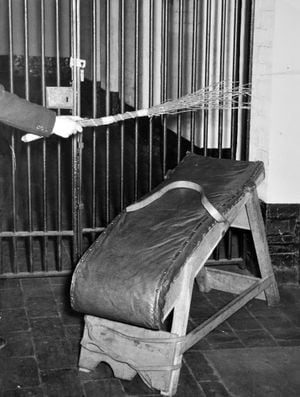
Most people will think of the cat-o'-nine-tails as something from the times of Nelson's navy, but at Shropshire Assizes in June 1946 a 24-year-old soldier serving with the Royal Army Ordnance Corps in Donnington was sentenced to received six strokes of "the cat," with 18 months' hard labour in jail thrown in for good measure.
His crime was robbery. Flogging had actually been abolished in the Army in reforms in 1881, but this was a civil case.
Those on the receiving end were flogged across their bare back.
Corporal punishment by order of the court was abolished in 1948, so this Scottish soldier may well have been the last person in Shropshire to have been on the receiving end of “the cat”. The punishment would have been administered privately in prison.
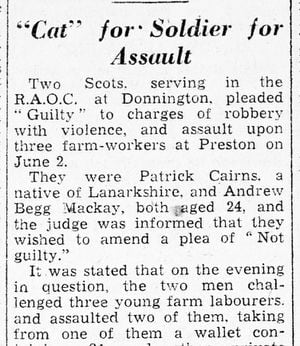
The cat-o’-nine-tails continued to be available as an internal prison punishment until the 1960s, but was rarely used.
Of course it would be better to halt crime in the first place, which brings us to the Broseley Association for the Prosecution of Felons, an ancient organisation with the original aim of stopping crime and offering rewards for the apprehension of offenders.
It and similar organisations were precursors of the police force, and most of the original members were property owners who banded together to protect themselves against criminals.
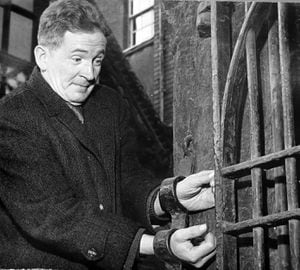
Nobody was sure when the Broseley group was formed, but the earliest surviving document dated from 1789. After the Great War it fell dormant, but was revived in 1932 and met once a year, early in December, when its members, numbering between 40 and 50, went through the accounts and then had a social event. They paid a subscription of five shillings (25p) a year.
By the late 1930s it had been a long time since the association handled a case of the type for which it was originally formed, but it still had notices offering rewards for the apprehension of wrongdoers if any of the members liked to make use of them. The chairman by that time was the rector of Broseley, the Rev C S Jackson.
By the time it wound up in 1959 it was almost certainly the last body of its kind in Britain.
When Queen Victoria came on the throne there were many hundreds of such societies up and down the country, offering rewards for the apprehension of criminals and recovering stolen goods – and in Broseley making payments to the village constable – but as police forces were created and became increasingly effective they faded out.
Broseley had its own criminal celebrities. In 1824 a special subscription was raised by the association to pay for the prosecution of one Daniel Wheat. Although his misdeeds are unfortunately not recorded it is likely that he was a notorious poacher. It looks like he was brought to book, as 27 guineas was subscribed – a massive sum for the time – and there was a further £11 to settle the lawyer's bill.
In 1882 the treasurer was Mr F H Potts, a partner in the Broseley solicitors firm of Potts & Potts, who decided the association needed tidying up and issued rules and articles. The scale of payments drawn up for informing on, or apprehending, persons proved guilty of offences against association members included £5 5 shillings for burglary, but a modest £2 2 shillings for stealing potatoes, turnips, cabbages, or other root vegetables from any garden, orchard, field, or enclosed ground.
Towards the end the members' lavish annual dinner became increasingly the centre of the association's activities, starting at noon and going on until nearly midnight. Dennis Mason, a local historian from Benthall who died aged 88 in November 2003, recalled attending one of the last as a very young man, and reckoned it was the best dinner he ever attended.
"However the raison d'etre for the old association had ceased and only a few half-hearted attempts to revive its former activities were made," he was to recall.
"The last rewards handed out were in 1934 to Messrs F Kitson and D Hinton for information leading to the conviction of two men for stealing mushrooms from land belonging to Mr S A Powell. Each received 10s 6d (53p)."
Apart from the dinners there was little association activity until 1946 when it gave £25 to victims of River Severn flooding.
Mr Jackson got the association to call a special general meeting in October of that year with a view to subscribing to the cost of restoring the church tower, part of which was then dangerous. The meeting made a donation of £150, and also gave £50 each to the Methodist, Congregational and Baptist churches of the town.
"The last meeting of the association was held at the Lion Hotel, Broseley, in 1959, when remaining funds were distributed between the local churches. Mr A J Garbett was the last official of this ancient society.
"At that meeting the association wound up its affairs and offered its interesting records to the Shrewsbury Borough Museum." added Mr Mason.
